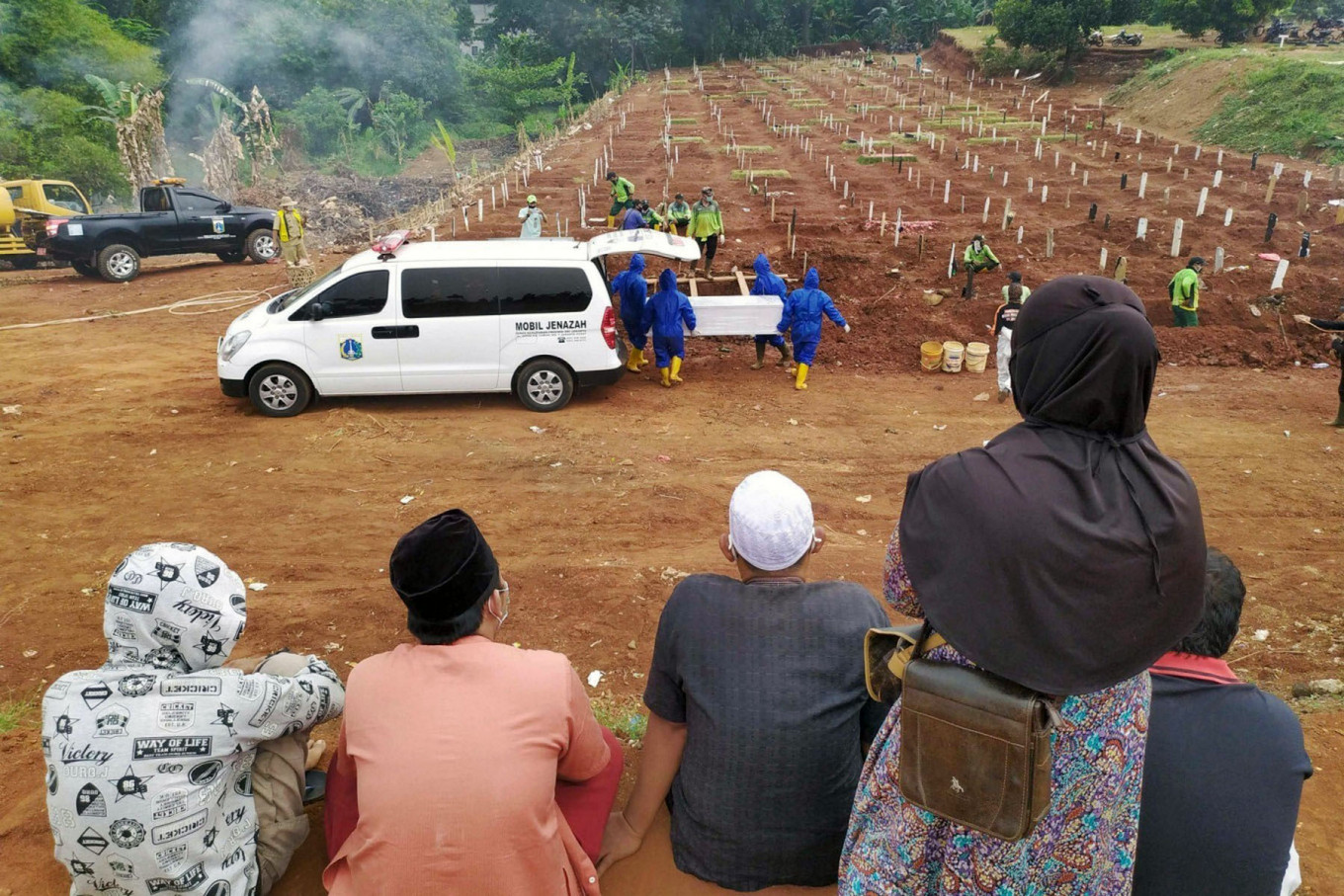Popular Reads
Top Results
Can't find what you're looking for?
View all search resultsPopular Reads
Top Results
Can't find what you're looking for?
View all search resultsBring back PSBB
The city is clearly in dire need of extraordinary measures to protect its citizens from the virus.
Change text size
Gift Premium Articles
to Anyone
I
n Pondok Ranggon cemetery in East Jakarta, some people who have died of COVID-19 have had to share a grave with their relatives because of a lack of space. Tegal Alur cemetery in West Jakarta is serving as an alternative, and the city government is preparing a 2 hectare plot at the Rorotan public cemetery in North Jakarta for COVID-19 burials, but the double-burial policy may have to be replicated sooner or later if the pandemic continues to claim lives.
Since the beginning of the outbreak 10 months ago, Jakarta has remained the epicenter of the country’s crisis. The capital city’s positivity rate – the share of tests conducted that yield positive results – has ranged from 10 to 17 percent since mid-December 2020, far above the World Health Organization’s recommended rate of below 5 percent.
In the past month, Jakarta has recorded a number of four-digit daily case tallies and, on at least four occasions, has exceeded 2,000 per day. On Saturday, the second day of the new year, 1,895 new infections were reported in the city, bringing Jakarta’s cumulative case toll to 187,586, accounting for about one fourth of the national figure.
Attributing the surge in known cases to an increase in testing is no longer possible as Jakarta has been testing more than 8,000 people a week – eight times the WHO standard. The city is clearly in dire need of extraordinary measures to protect its citizens from the virus.
Without bold action, the city’s public health system will be at risk of a breakdown. Health Minister Budi Gunadi Sadikin recently listed Jakarta among the regions whose hospital bed occupancy rate had reached the critical level of 70 percent.
Even if Jakarta adds more hospital beds, it is still facing a scarcity of health workers. As Indonesian Hospital Association (PERSI) Jakarta chairman Koesmedi Priharto put it, ensuring sufficient medical workers is impossible.
Now, just after the long New Year break, Jakarta is anticipating another spike in cases, just as it experienced after the two previous long weekends in August and October, when cases rose by 77.3 percent and 59.6 percent respectively.
Data shows that nearly 80,000 people left Jakarta by train for destinations throughout Java for Christmas and New Year, while flight passengers increased by 20 percent from the normal level of between 83,000 and 85,000 per day. Meanwhile, more than 483,000 people left the city in private vehicles. And now they have arrived back in Jakarta as office, business and learning activities resume today.
It makes sense to expect the city to register a significant rise in COVID-19 cases in the coming two weeks, a possibility Budi himself has predicted. If the warning turns out to be true, Jakarta has simply not made the changes it needed to prevent the pandemic from spiraling out of control.
Imposing large-scale social restrictions (PSBB) helped Jakarta handle the pandemic better twice last year. While major Asian cities have resumed their lockdown policies, Jakarta should reinstate full PSBB this time around, rather than extending the transitional PSBB, which has proven fruitless.










